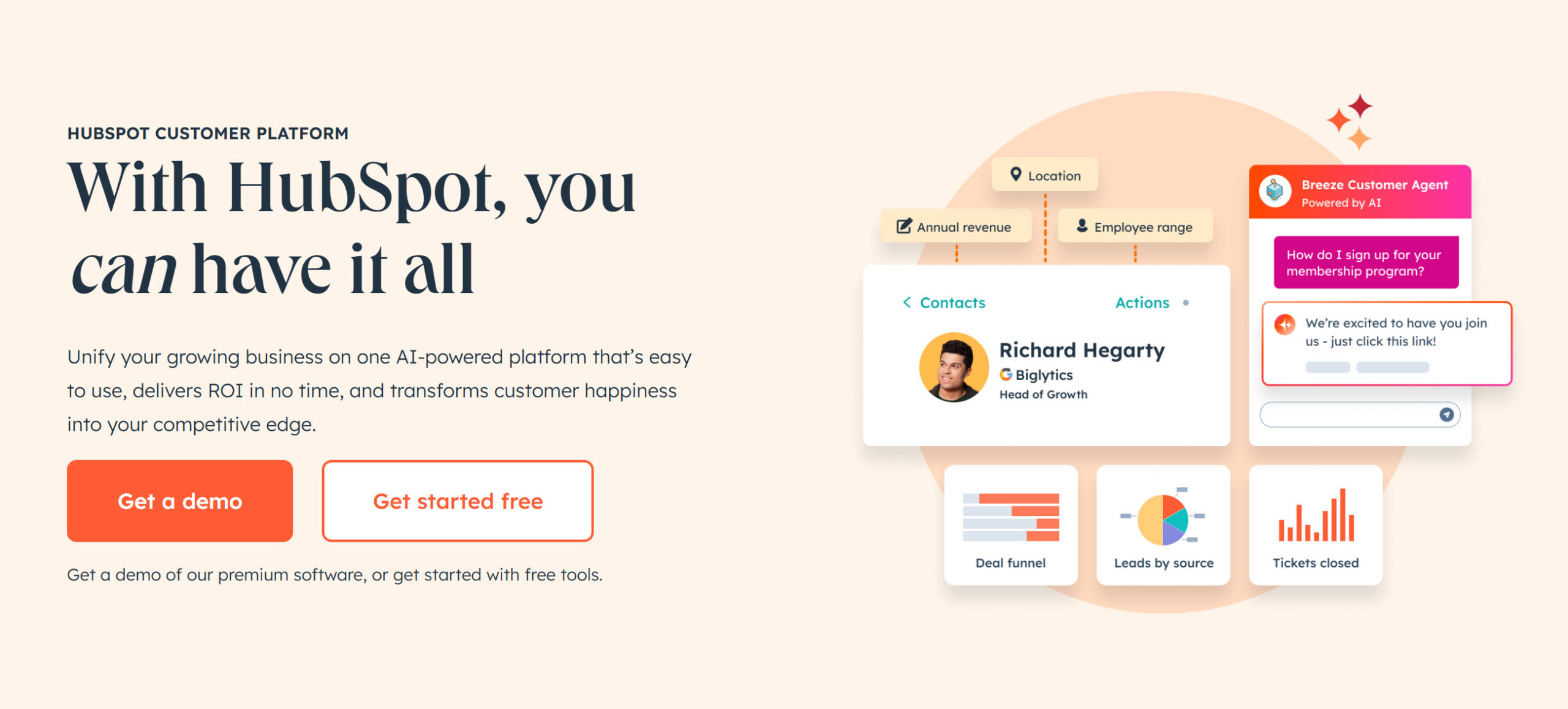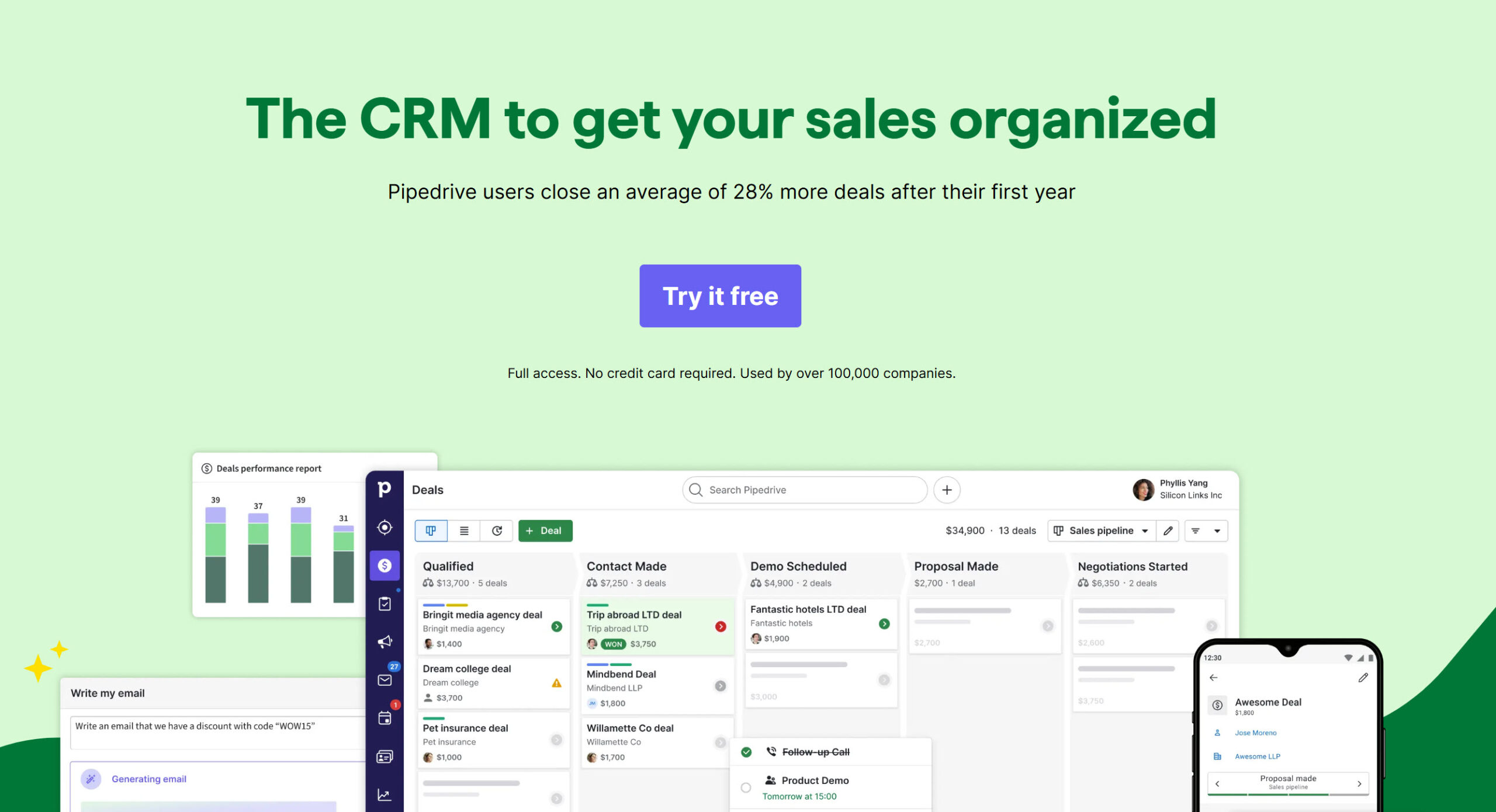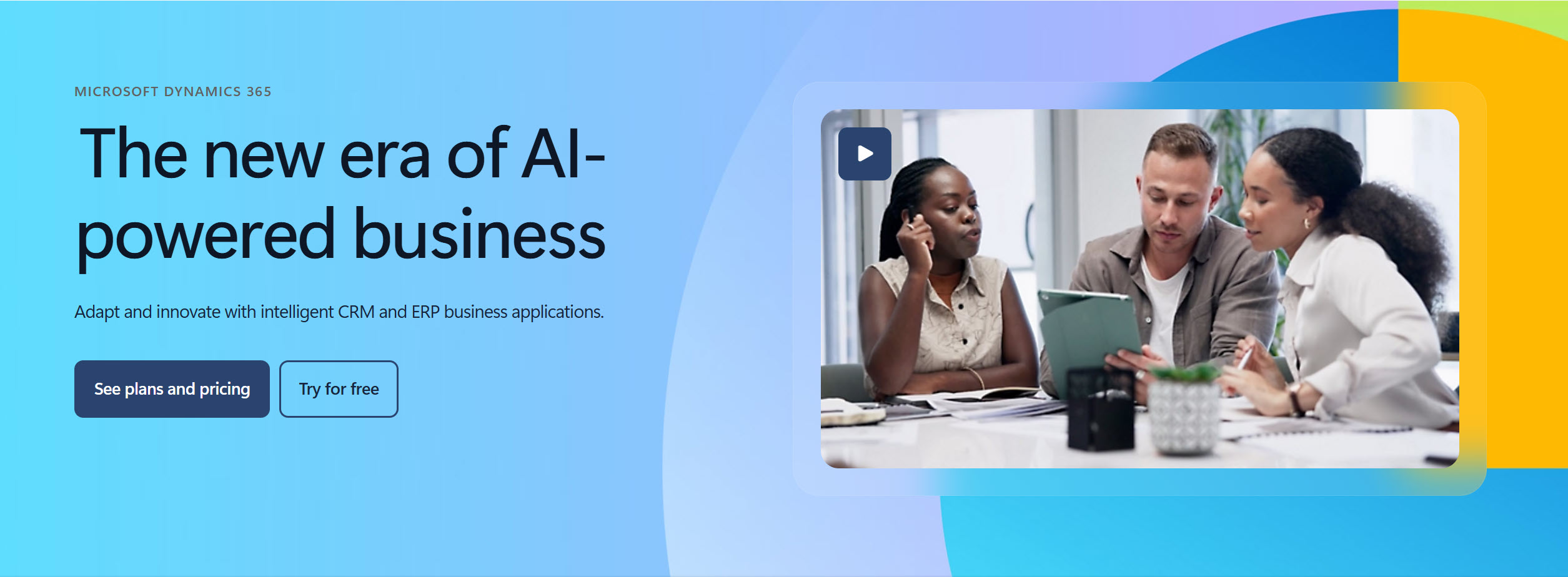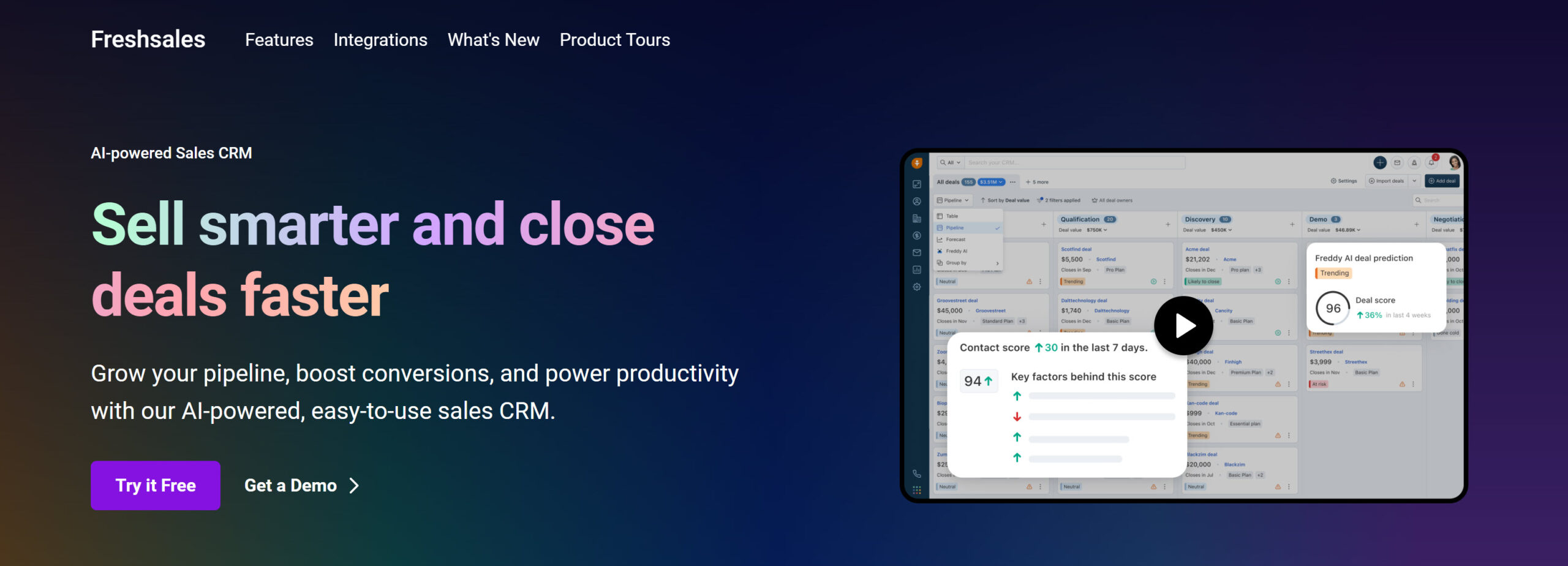Best Salesforce alternatives in 2025: Complete CRM comparison guide
Best Salesforce alternatives in 2025: Complete CRM comparison guide
Searching for Salesforce alternatives? You’re not alone. While Salesforce remains a CRM market leader, countless businesses are discovering better-fitting solutions that offer superior value, easier implementation, and more intuitive user experiences.
Whether you’re evaluating Salesforce alternatives due to specific feature requirements, budget considerations, or implementation preferences, this comprehensive 2025 guide will help you find the perfect CRM solution for your business needs.
The CRM landscape has evolved dramatically, with new players offering innovative features, competitive pricing models, and specialized functionality. This comprehensive guide examines the best Salesforce alternatives available in 2025, helping you make an informed decision for your business.
Why Salesforce remains a top choice
Before exploring alternatives, it’s important to recognize why Salesforce continues to lead the CRM market:
- Enterprise-grade capabilities: Salesforce offers unmatched scalability and customization options, making it ideal for large organizations with complex sales processes and diverse teams.
- Comprehensive ecosystem: The Salesforce platform includes a vast marketplace of apps and integrations, plus robust third-party developer support that enables virtually unlimited customization possibilities.
- Advanced automation and AI: Salesforce Einstein provides sophisticated AI-powered insights, predictive analytics, and automation capabilities that help sales teams work more efficiently and close deals faster.
- Industry-specific solutions: With specialized offerings for healthcare, financial services, manufacturing, and other industries, Salesforce provides tailored functionality that addresses sector-specific compliance and workflow requirements.
- Global scale and reliability: Salesforce’s infrastructure supports businesses operating worldwide, with enterprise-level security, compliance certifications, and uptime guarantees that meet the most demanding requirements.
For many businesses, especially those with complex sales processes, large teams, or specific compliance needs, Salesforce represents the gold standard in CRM functionality.
When to consider Salesforce alternatives
While Salesforce excels in many areas, certain business situations may warrant exploring alternatives:
- Budget optimization: Smaller businesses or startups may benefit from more cost-effective solutions that provide essential CRM functionality without enterprise-level pricing.
- Simplified implementation: Organizations seeking quick deployment may prefer platforms with streamlined setup processes and minimal customization requirements.
- Industry-specific needs: Some businesses require specialized features for their particular sector that niche CRM providers may offer more effectively.
- User experience preferences: Teams may prefer more intuitive, modern interfaces that require less training and offer better user adoption rates.
- Integration requirements: Businesses with specific technology stacks may find alternatives that offer more seamless connections with their existing tools.
Frequently asked questions about Salesforce alternatives
What is the best free alternative to Salesforce? HubSpot CRM offers the most comprehensive free tier among Salesforce alternatives, providing contact management, deal tracking, and basic reporting at no cost. Zoho CRM also offers a free plan for up to 3 users with essential CRM functionality.
Which Salesforce alternative is easiest to use? Pipedrive and HubSpot are consistently rated as the most user-friendly alternatives. Both platforms prioritize intuitive design and require minimal training for new users.
Can I migrate my data from Salesforce to these alternatives? Yes, most major alternatives offer data migration tools or services. HubSpot, Pipedrive, and Zoho CRM all provide migration assistance, though complex customizations may require professional help.
What’s the most cost-effective alternative to Salesforce? Pipedrive ($14.90/month) and Zoho CRM ($14/month) offer the lowest starting prices among full-featured alternatives. Both provide excellent value for small to medium-sized businesses.
Do these alternatives integrate with the same apps as Salesforce? Most alternatives integrate with popular business tools like Google Workspace, Microsoft Office, email marketing platforms, and accounting software. However, the specific integrations vary by platform, so check compatibility with your essential tools.
Which alternative is best for large enterprises? Microsoft Dynamics 365 is the strongest enterprise-focused alternative, offering advanced customization, compliance features, and seamless Microsoft ecosystem integration that large organizations require.
Quick comparison: Top Salesforce alternatives
| CRM platform | Starting price | Best for | Free tier |
| HubSpot | $45/month | Marketing-focused businesses | Yes |
| Pipedrive | $14.90/month | Sales-driven teams | No |
| Microsoft Dynamics 365 | $65/month | Enterprise Microsoft users | No |
| Zoho CRM | $14/month | Small-medium businesses | Yes (3 users) |
| Freshsales | $15/month | Customer experience focus | Yes |
| ActiveCampaign | $29/month | Ecommerce & automation | No |
| Copper | $25/month | Google Workspace users | No |
Top Salesforce alternatives for 2025
1. HubSpot CRM – The growth-focused alternative
HubSpot has emerged as one of the most compelling Salesforce alternatives, particularly for businesses focused on inbound marketing and sales alignment.
Key strengths:
- Completely free tier with robust functionality for small teams
- Seamless integration between marketing, sales, and service hubs
- Intuitive interface that requires minimal training
- Excellent reporting and analytics capabilities
- Strong focus on content marketing and lead nurturing
2025 advantages: HubSpot has significantly enhanced its enterprise features while maintaining its user-friendly approach. New AI-powered tools help automate routine tasks and provide intelligent insights for sales teams.
Best for: Small to medium businesses, companies with strong marketing focus, and organizations prioritizing ease of use and quick implementation.
Pricing: Free tier available; paid plans start at $45/month per user.
2. Pipedrive – The sales-first solution
Pipedrive has built its reputation on simplicity and sales effectiveness, making it an excellent choice for teams that prioritize deal management and sales pipeline visibility.
Key strengths:
- Visual pipeline management that’s easy to understand and use
- Strong mobile app for sales teams on the go
- Excellent activity tracking and follow-up reminders
- Competitive pricing with transparent feature tiers
- Robust reporting focused on sales metrics
2025 enhancements: Recent updates include improved automation capabilities and better integration with popular business tools. The platform has also enhanced its email tracking and communication features.
Best for: Sales-focused teams, small to medium businesses, and organizations that value simplicity and streamlined workflows.
Pricing: Plans start at $14.90/month per user.
3. Microsoft Dynamics 365 – The enterprise alternative
For organizations already invested in the Microsoft ecosystem, Dynamics 365 offers a comprehensive alternative that integrates seamlessly with familiar Microsoft tools.
Key strengths:
- Deep integration with Microsoft Office 365 and other Microsoft products
- Comprehensive business application suite beyond just CRM
- Strong enterprise-level security and compliance features
- Flexible deployment options (cloud, on-premises, or hybrid)
- Advanced analytics and AI capabilities through Power BI integration
2025 developments: Microsoft has continued to enhance Dynamics 365 with improved AI features and better customization options. The platform now offers more industry-specific solutions and enhanced low-code/no-code development capabilities.
Best for: Large enterprises, organizations heavily using Microsoft products, and businesses requiring extensive customization and compliance features.
Pricing: Plans start at $65/month per user for Sales Professional.
4. Zoho CRM – The comprehensive suite alternative
Zoho CRM stands out by offering a complete business suite at competitive prices, making it attractive for businesses looking for an all-in-one solution.
Key strengths:
- Extensive suite of integrated business applications
- Highly customizable with advanced workflow automation
- Competitive pricing with generous feature inclusion
- Strong multi-channel communication capabilities
- Comprehensive mobile app functionality
2025 updates: Zoho has focused on enhancing its AI assistant (Zia) and improving user interface design. New features include better social media integration and enhanced e-commerce capabilities.
Best for: Small to medium businesses, companies wanting integrated business suite, and organizations seeking comprehensive functionality at competitive prices.
Pricing: Plans start at $14/month per user, with a free tier for up to 3 users.
5. Freshsales (Freshworks) – The customer experience alternative
Freshsales positions itself as a modern, AI-powered CRM that focuses on delivering exceptional customer experiences throughout the entire lifecycle.
Key strengths:
- Intuitive, modern interface with excellent user experience
- Built-in phone and email capabilities
- Strong lead scoring and qualification features
- Comprehensive customer support integration through Freshdesk
- AI-powered insights and predictions
2025 improvements: Freshworks has enhanced its AI capabilities significantly, offering better predictive analytics and automated task management. The platform has also improved its integration ecosystem.
Best for: Customer-centric businesses, companies prioritizing user experience, and organizations looking for built-in communication tools.
Pricing: Plans start at $15/month per user, with a free tier available.
6. ActiveCampaign – The marketing automation alternative
While primarily known for email marketing, ActiveCampaign has evolved into a powerful CRM alternative, especially for businesses focused on marketing automation and customer journey management.
Key strengths:
- Exceptional email marketing and automation capabilities
- Advanced segmentation and personalization features
- Strong integration with ecommerce platforms
- Comprehensive customer journey mapping
- Excellent deliverability rates for email campaigns
2025 features: ActiveCampaign has expanded its sales CRM features while maintaining its marketing automation strength. New predictive analytics and enhanced reporting provide better insights into customer behavior.
Best for: Ecommerce businesses, companies with sophisticated marketing funnels, and organizations prioritizing email marketing and automation.
Pricing: Plans start at $29/month for unlimited email sends.
7. Copper – The Google Workspace alternative
Formerly known as ProsperWorks, Copper is designed specifically for businesses that rely heavily on Google Workspace applications.
Key strengths:
- Seamless integration with Google Workspace applications
- Automatic data entry from Gmail and Google Calendar
- Clean, intuitive interface that feels like native Google apps
- Strong project management capabilities
- Excellent mobile experience
2025 enhancements: Copper has improved its reporting capabilities and added new automation features. The platform now offers better customization options while maintaining its signature simplicity.
Best for: Google Workspace users, small to medium businesses, and teams that value simplicity and seamless integration.
Pricing: Plans start at $25/month per user.
Cost comparison: Alternatives vs. Salesforce
Based on current 2025 pricing, here’s how the alternatives compare to Salesforce:
Salesforce pricing (2025):
- Salesforce pricing starts at $25 per user per month for the Starter plan and can go up to $330 per user per month
- Sales cloud pricing for the Professional plan is $75 per user, per month
Alternative pricing:
- HubSpot: Free tier available; paid plans start at $45/month per user
- Pipedrive: Plans start at $14.90/month per user
- Zoho CRM: Plans start at $14/month per user, with a free tier for up to 3 users
- Freshsales: Plans start at $15/month per user, with a free tier available
Many alternatives offer more transparent pricing structures with straightforward feature tiers. Remember to factor in implementation costs, training expenses, and any necessary integrations when calculating your total investment.
Connecting your WordPress site to your CRM
If your business website runs on WordPress, you’ll want to ensure seamless lead capture and CRM integration. Gravity Forms provides an excellent solution for collecting leads on your WordPress site and automatically sending them to your chosen CRM platform.
Native CRM integrations: Gravity Forms offers integrations with numerous platforms, including:
- Salesforce – Direct connection for seamless lead transfer and data synchronization
- HubSpot CRM – Direct connection for automatic lead transfer
- Zoho CRM – Native integration for seamless data flow
- ActiveCampaign – Built-in connector for marketing automation
Zapier for additional connections: For CRM platforms without native Gravity Forms integration (like Pipedrive, Freshsales, and Copper), you can use Zapier to create automated workflows. This allows you to capture leads through Gravity Forms and automatically send them to virtually any CRM platform, ensuring no leads fall through the cracks.
This integration capability means you can maintain your existing WordPress lead generation setup while benefiting from your chosen CRM solution.
Ready to explore your CRM options?
Choosing the right CRM in 2025 depends on your specific business needs, team size, and growth objectives. Whether you continue with Salesforce or explore alternatives, start by identifying your core requirements, testing free trials of promising platforms, and involving your team in the evaluation process.
Most businesses discover that finding the right CRM fit – whether it’s Salesforce or an alternative – leads to better user adoption, improved productivity, and optimized ROI.
Remember that the best CRM is the one your team will actually use consistently. Often, a platform that aligns closely with your specific workflows and requirements can deliver better results simply because it gets adopted more readily across your organization.
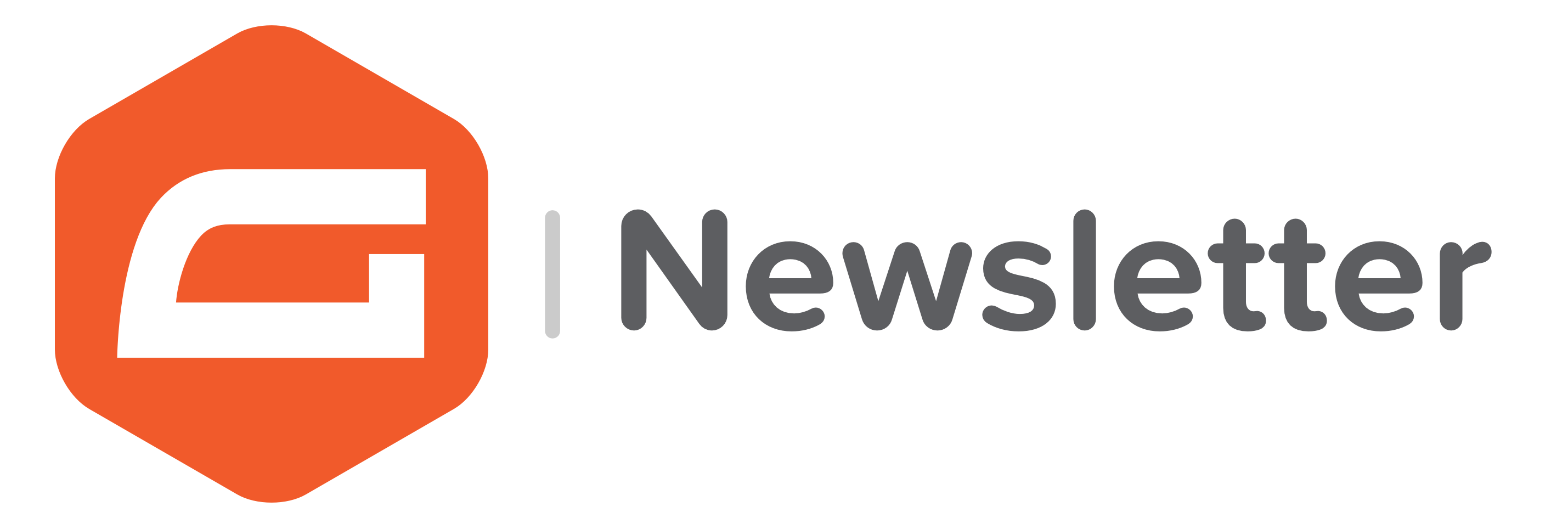
If you want to keep up-to-date with what’s happening on the blog sign up for the Gravity Forms newsletter!

